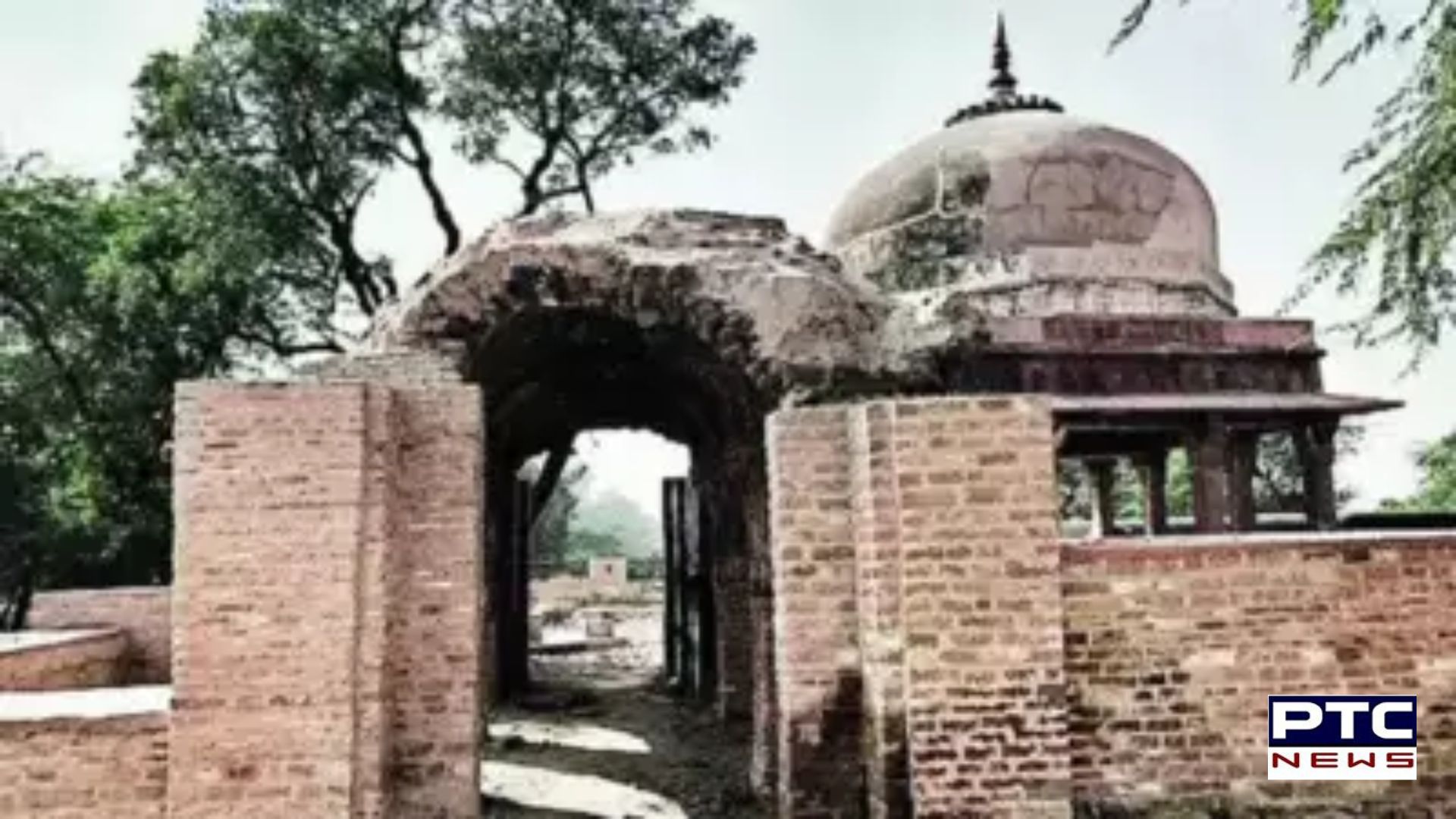

Court denies Muslim claim over UP ‘Mahabharata’ site after 53-year case
PTC News Desk: In a significant ruling on a 53-year-old legal battle, the court of civil judge (junior division) in Baghpat, Uttar Pradesh, delivered a verdict against the Muslim petitioners' claim over a disputed site believed by Hindus to be the 'lakshagriha' (palace of lac) from the epic 'Mahabharata'. The judgment, issued on Monday, dismissed the claims made by the Muslim side regarding the encroachment on a 100-bigha parcel of land.
The contested land, located in Barnawa village of Baghpat district, is positioned on an ancient mound near the confluence of the Hindon and Krishni rivers. Over the years, the site has been the subject of a prolonged dispute, as it encompasses both a tomb dedicated to Sufi saint Badruddin Shah and a graveyard.
/ptc-news/media/media_files/fDr3cVtmhzz8ZE5l4k9Z.jpg)
In a landmark decision, the court has ruled against the claim made by Muslim petitioners regarding a disputed site believed by Hindus to be the 'lakshagriha' (palace of lac) from the epic 'Mahabharata'. The site, located near the confluence of the Hindon and Krishni rivers in Barnawa village of Baghpat district, Uttar Pradesh, has been a subject of contention for over five decades.
Protected Site under ASI: The site is currently protected under the Archaeological Survey of India (ASI), highlighting its historical significance and cultural importance.
Legal Background: The legal battle traces back to 1970 when Mukim Khan, the then mutwalli (caretaker) of the graveyard on the disputed land, filed a court petition claiming ownership and seeking to prevent alleged encroachments by Hindus. The Hindu side, represented by local priest Krishnadutt Maharaj, argued that the site housed the 'lakshagriha', a pivotal structure from the Mahabharata.
Court Findings: The court order, spanning 32 pages, identified discrepancies in the plaintiff's claims. Notably, the Muslim side failed to substantiate the age of the Sufi saint's tomb and the establishment of the graveyard as waqf property. Moreover, the court considered historical documents, including an Official Gazette from 1920, which supported the Hindu claim regarding the site's significance in the Mahabharata narrative.
Also Read: Bribery scandal: Former Mohali DSP Raka Ghira convicted in bribery case; Rs 90L recovered
Also Read: ED to take legal action against AAP leaders following Atishi's exposé: Sources
Implications: The court's decision underscores the challenges in establishing the religious and historical claims over disputed sites in India. While the Muslim plaintiffs intend to appeal the ruling, the case reflects broader tensions surrounding land ownership and historical narratives.
Historical Significance: KK Sharma, an associate professor of history, emphasizes the archaeological significance of the site, suggesting that it holds traces of various civilisations. He mentions the discovery of painted grey ware pottery during ASI surveys, linking the region to ancient cities mentioned in the Mahabharata, such as Mathura, Meerut, and Hastinapur.
The verdict marks a significant development in the longstanding dispute, shedding light on the complexities of heritage preservation and religious sentiments in contemporary India.
Also Read: New video surfaces of Chandigarh poll officer post Supreme Court criticism
Also Read: BJP alleges Rahul Gandhi offered dog biscuit; Himanta Sarma reacts
(Inputs from agencies)
-
